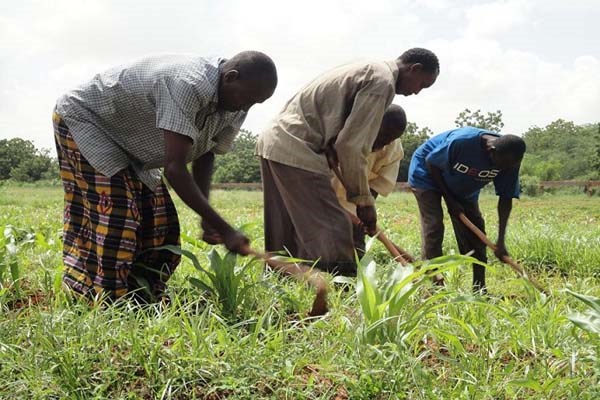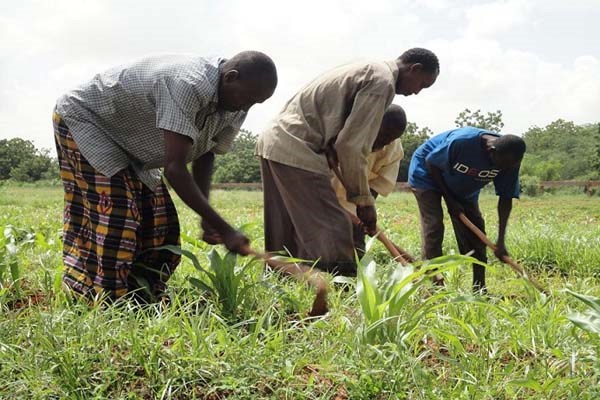
After 15 years of cutting down trees to make charcoal, Abdi Ahmed Oladhas put down his axe and taken up a hoe, after being persuaded by a local farmers’ association to help end deforestation in central Somalia’s Galmudug region.
Abdi, 40, is now working as a farm labourer in Hero-dhagahley, making five to six dollars a day ploughing, irrigating, and harvesting crops. He has moved his wife and eight children from a rural part of Hero-dhagahley to the town, 60 kilometres south of Hobyo, and is planning to enrol three of his children in school in September.
Abdi is one of200charcoal-makers who have turned to farming and other ways of earning a living, with guidance and support from the Muruq-maal farmers’ association.
“They inform you directly and tell you that they have a job for you today. You work on that farm and later go wherever else there are jobs. The association is always ready to help us,” he said.“ I work on many different farms and each one has a different task for the day. Sometimes you harvest the crops and finish everything by 12 noon.”
Abdi used to lead a gang of 10charcoal-makers, cuttingdown at least 15 mature trees a day, including umbrella thorn trees (Acacia tortilis) and frankincense trees (Boswellia neglecta). Every other month, they took 200 bags of charcoal they had made to sell in Galkayo.
Abdi said he made $400 each time they sold the charcoal. He used the money to pay off his family’s food bills that had accumulated over the past two months.
“My current job is easier, although the charcoal business made more money. We used to cut as many trees as we could since no one holds you accountable for it.” He added, “It wasn’t easy though, as a tree doesn’t just turn into charcoal when you cut it down. You have to bring the wood together in one place, burn it, cool it, and then load it onto a vehicle.”
Muruq-maal farmers’ association first visited Ali and his team while they were making charcoal out in the bush. The farmers persuaded them to stop cutting trees in exchange for help in learning new skills and getting a better job that will be good for their lives as well as the environment.
Said Hersi Sahal, 28, another reformed tree-cutter, is now working on a farm six hours a day earning $90 a month. Every other day he earns an extra three dollars for an afternoon’s labour on building sites.
“I am a farmer now, but before I used to cut trees and damage the environment. I would like to advise those who used to cut trees with me to stop and join us. I am now living a better life than before,” said Said, a father of four, who spent the past 10 years making charcoal.
Having been forced into charcoal-making by unemployment, Said stated that he is planning to start his own farm with skills training and help in getting some land from the farmers’ association.
Muruq-maal farmers’ association chairman, Abdiweli Ali Hashi, told Radio Ergo that the farmers decided to raise awareness among those engaged in deforestation because their own farms and livelihoods were being put at risk by the increasing environmental damage.Soil erosion was making it harder for their crops to thrive.
Abdiweli said that so far they have placed 48 of the 200 former charcoal-makers in farming jobs across 190 farms on the eastern side of Hero-dhagahley town.

Charcoal-burners in central Somalia give up cutting trees and take up farming
After 15 years of cutting down trees to make charcoal, Abdi Ahmed Oladhas put down his axe and taken up a hoe, after being persuaded by a local farmers’ association to help end deforestation in central Somalia’s Galmudug region.
